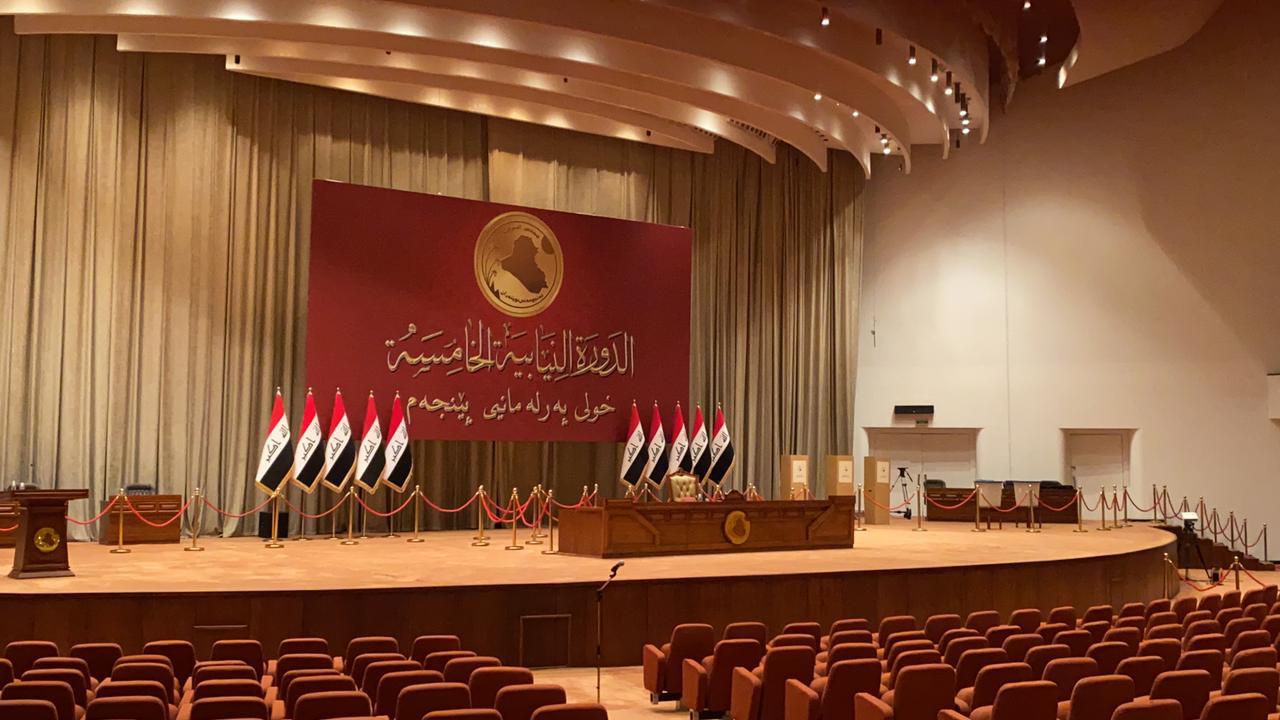INSUBCONTINENT EXCLUSIVE:
Shafaq News/ Iraq marked its longest post-election deadlock on Wednesday as infighting among Shi'ite and Kurdish groups in particular
prevents the formation of a government, hampering reforms needed as the country struggles to recover from decades of conflict.More than nine
months since an October election, lawmakers tasked with choosing a president and prime minister looked no closer to an agreement, bringing
the country to a record 290 days without a head of state or cabinet.The last longest deadlock was in 2010, when after 289 days Prime
Minister Nouri al-Maliki got a second term.The outgoing government of Prime Minister Mustafa al-Kadhimi continues to run the country
If parties cannot agree on a new government, Kadhimi might stay on as caretaker until new elections can be held.In a sign of further
potential delays, thousands of supporters of populist Shi'ite cleric Moqtada al-Sadr stormed Baghdad's empty parliament late on Wednesday,
chanting slogans against his Shi'ite political rivals just days after they indicated agreement on a potential prime minister.The paralysis
has left Iraq without a budget for 2022, holding up spending on much-needed infrastructure projects and economic reform.Iraqis say the
situation is exacerbating a lack of services and jobs even as Baghdad earns record oil income because of high crude prices and has seen no
major wars since the defeat of Islamic State five years ago."There's no government, so there's no budget, streets remain potholed, power and
water are scarce and there's poor healthcare and education," said Mohammed Mohammed, a 68-year-old retired civil servant from the southern
city of Nassiriya.The same conditions Mohammed described fuelled mass protests across Baghdad and southern Iraq in 2019.Demonstrators
demanded the removal of parties that have been in power since the 2003 U.S.-led invasion that toppled dictator Saddam Hussein, accusing them
of rampant corruption that has stopped Iraq moving forward
Security forces and militiamen killed hundreds of protesters and the protests fizzled out in 2020.Kadhimi took office as a compromise
candidate in response to the demonstrations, promising to punish killers of protesters and hold an early election which was held on Oct
10.Most of those who protested have given up hope for change."Whatever government forms, it'll be made up of the people and parties who
killed our friends," said Ali al-Khayali, an anti-government activist who participated in the demonstrations.Iraqi government formation
often takes months and requires the buy-in of all main political parties.Since Saddam was toppled, Shi'ite parties which represent the
country's demographic majority have held the post of prime minister, Kurds the presidency and Sunnis the role of parliament
speaker.Sharpening divisions within those groups have made this process especially long.In the Shi'ite camp, the biggest October vote
winner, Sadr withdrew his 74 lawmakers from parliament last month after he failed to form a government that would exclude his Shi'ite
rivals, most of whom who are backed by Iran and have heavily-armed paramilitary wings.Sadr's withdrawal ceded dozens of seats to those
parties, but he has indicated he could stir up unrest among his millions-strong popular base - and his own militia - if they try to form a
government he disapproves of. Sadr this month effectively vetoed the candidacy of arch-rival Maliki, accusing the former premier of
corruption in a Tweet.Sadr's rivals floated another candidate, Mohammed Shiya al-Sudani, for prime minister, but Sadr appears to oppose his
candidacy because he is an ally of Maliki."Sudani is just a shadow of Maliki," said a member of Sadr's political party, who spoke on
condition of anonymity because he is not authorised to give statements to the media.Sadr's supporters broke into Baghdad's fortified Green
Zone, which hosts foreign embassies and government buildings in central Baghdad, on Wednesday, streaming past police and chanting "Maliki
you are garbage"."We're going to demonstrate until corrupt politicians and groups backed by Iran are gone," Sheikh Safaa al-Baghdadi, a
religious teacher, said shortly before protesters entered parliament.Disagreement among the main Kurdish parties that run the
semi-autonomous Kurdistan region in northern Iraq meanwhile prevents the selection of a president - who, once chosen by parliament, names a
prime minister.The Patriotic Union of Kurdistan party has held the presidency since 2003.Their rivals, the Kurdistan Democratic Party (KDP),
which claimed the largest number of Kurdish votes by far, are insisting on their own candidate for president
Neither side appears willing to budge."We've not been able to agree so far
The post of president shouldn't just be for one Kurdish party for life," said Shirwan Dubardani, a KDP lawmaker.Source: Reuters

